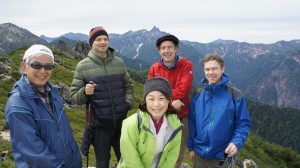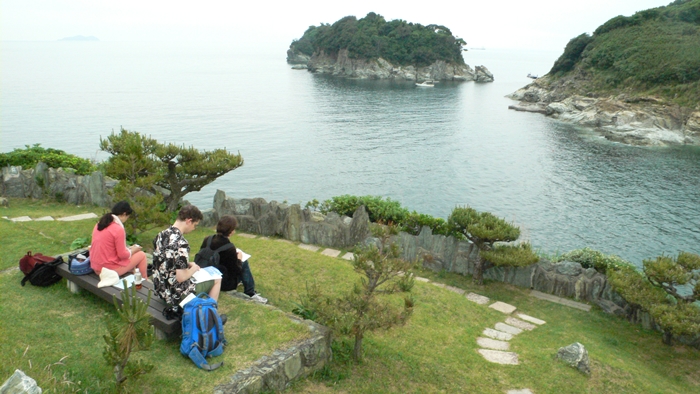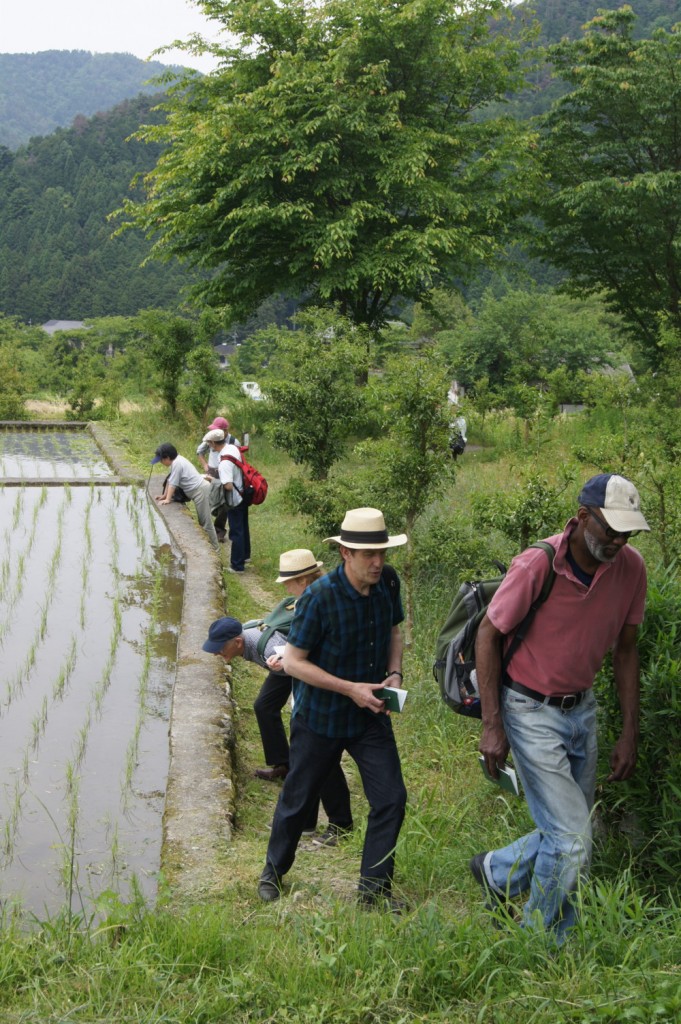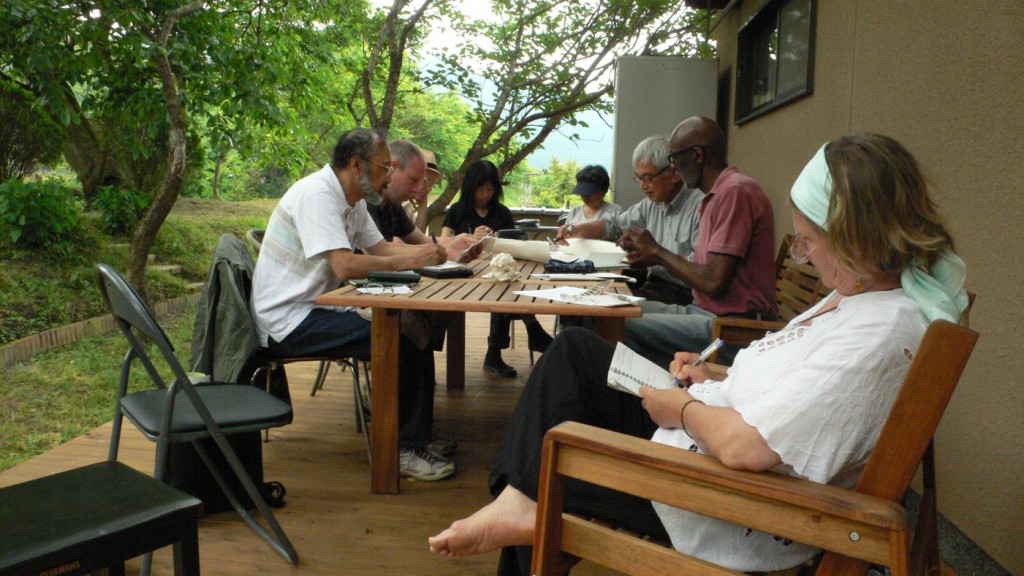Hailstone Haiku Circle (by Stephen Gill)
Under the boots
of marching soldiers
sparkle of new-green grass
– (Keiko Yurugi, from Hailstones, 2001)
Hailstone Haiku Circle was founded by Stephen Gill (haiku name ‘Tito’) in 2000 in the Kansai region of Japan for poets writing haiku in English. It comprises largely haiku students (all adults; one class in Osaka – 4th Thu.; another in Kyoto – 2nd Thu.) and poet friends (many are university lecturers/profs. over here). There is no annual subscription or official membership, although people begin to refer to themselves over the years (through association and publishing) as ‘Hailstones’.
In our last book we comprised just over 70 poets, two-thirds Japanese writing in English. Stephen Gill’s mentor is the translator and poet, Nobuyuki Yuasa, who has continued to be a close supporter of and contributor to the group. It was his translations that were in the Penguin Classic Basho ‘Narrow Road’ book.

Hailstone has published to date nine collections which showcase all the haiku arts, including linked verse renga (renku), haibun (haiku short essays) and haiga (haiku and pictures). We have had occasional exhibitions, both in Osaka and Kyoto and, for a few years now, we have organized Japan’s only international haibun contest, the Genjuan. Our 2015 winner was Bhutanese; 2014, American. As well as Stephen Gill, judges for this were Nenten Tsubouchi and Hisashi Miyazaki.
The Icebox is the Hailstone’s website: popular, spirited, light, but (hopefully) also affording some unique insights into the culture of Japanese haiku and its seasonal cycles, both modern and trad. The winning pieces from the past 7 years of haibun contests are there to read.
We thrive on seasonal events, which are usually well-attended. Stephen Gill was the British Haiku Society’s first Events Officer back in the UK in the early ‘90s, so he learned how to go about this, and now many others convene events, at which a good deal of the poems are born. We just completed our 14th annual Autumn Haike (haiku hike), this year on Mt. Bunagatake in Shiga Prefecture. (Branko Manojlovic has written a report on it near the top of the Icebox website.) If there is a trait to be found in Hailstone’s haiku output, perhaps it is that most of our best ones ‘strike’ then ‘melt’.
Gone
like autumn leaves
the woman beneath the bridge
– (John Dougill, from Meltdown, 2013)
The next Hailstone event is a joint event with Writers in Kyoto, comprising a historical ‘Emperors and Generals Ginko’. This involves a composition stroll in the Tambabashi area of S.E.Kyoto on Dec. 12, starting at 10.30. Participants will stroll through woods past burial mounds of emperors and then into town via a couple of outstanding Shinto shrines, ending with a late lunch. Anyone is welcome to attend.



